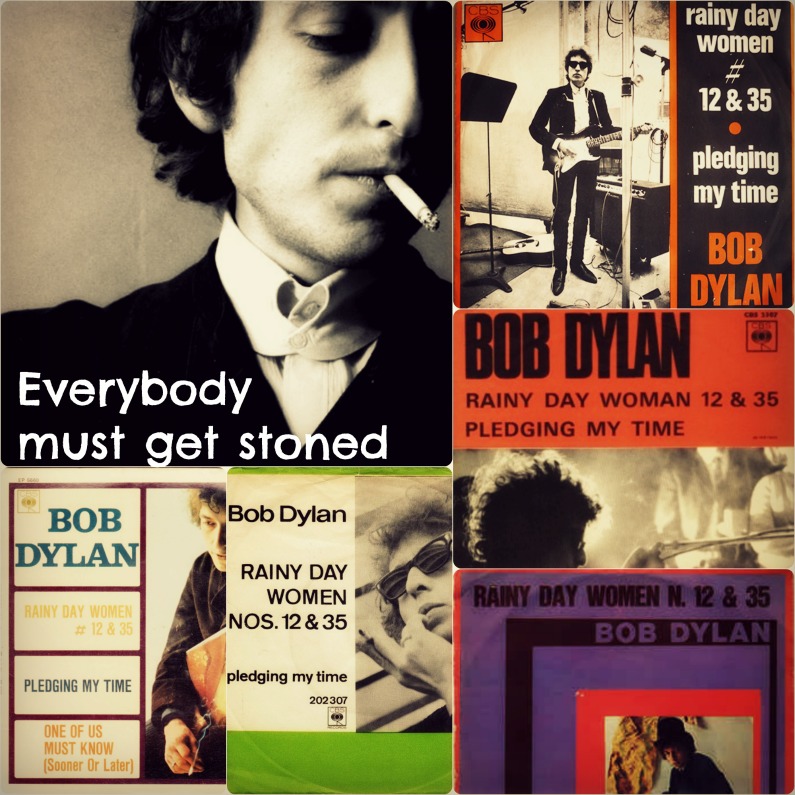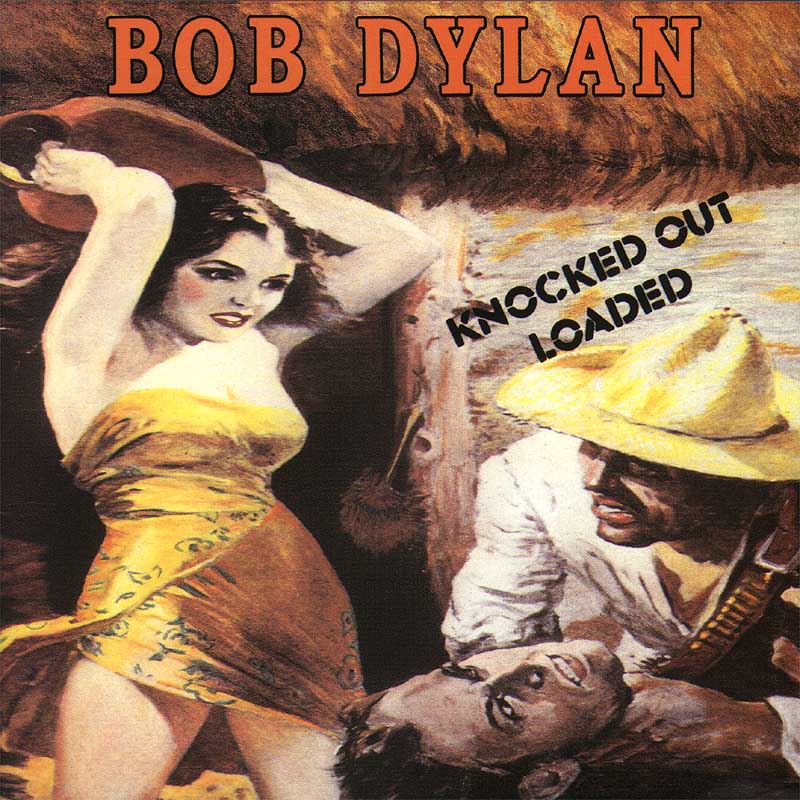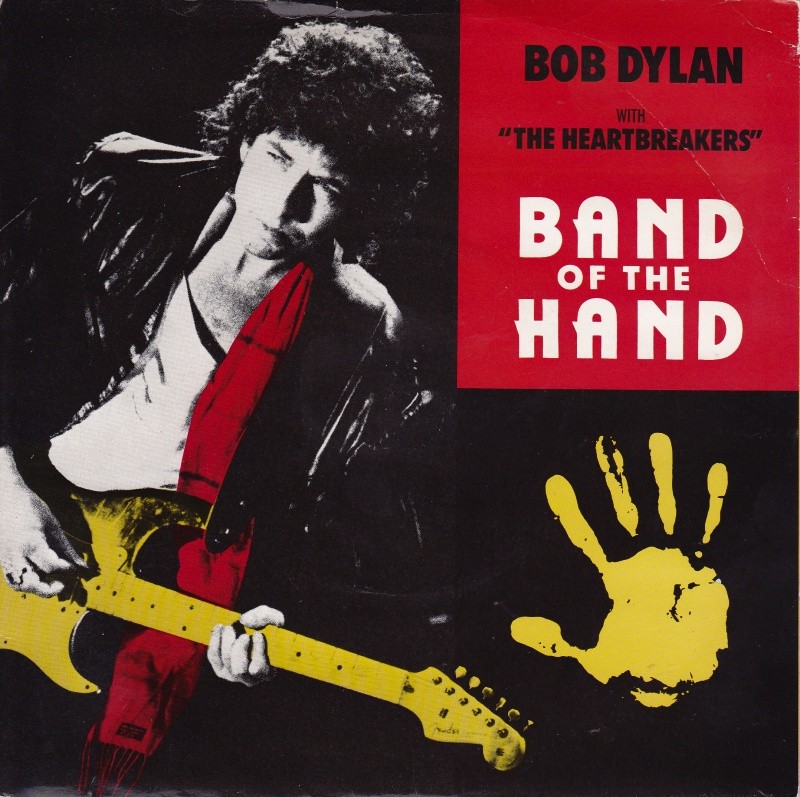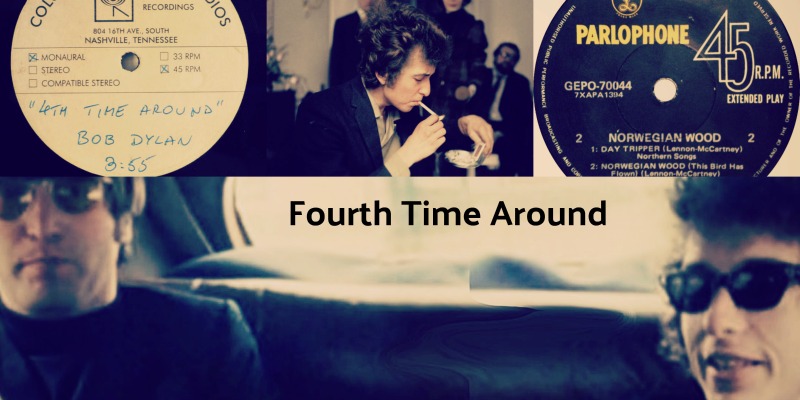
[vc_row][vc_column][vc_message message_box_color=”mulled_wine” icon_fontawesome=”fa fa-quote-left”]When she said
“Don’t waste your words, they’re just lies”
I cried she was deaf
And she worked on my face until breaking my eyes
Then said, “What else you got left?”
It was then that I got up to leave
But she said, “Don’t forget
Everybody must give something back
For something they get”
–
What exactly inspired “4th Time Around” is one of the great Dylan mysteries. The melody and story line are a direct takeoff of the 1965 Beatles song “Norwegian Wood” – among the band’s first songs with a clear Dylan influence. Was the line “I never asked for your crutch, now don’t ask for mine” a warning to stop ripping him off? Dylan’s never said, but three months after he recorded it, he went on a famously stoned limo ride with John Lennon around London and didn’t seem to be harboring any malice. The next year he released John Wesley Harding, which has what appears to be an upside-down image of the Beatles hidden in a tree on the cover – but that’s another mystery.
–Rollingstone.com[/vc_message][/vc_column][/vc_row]

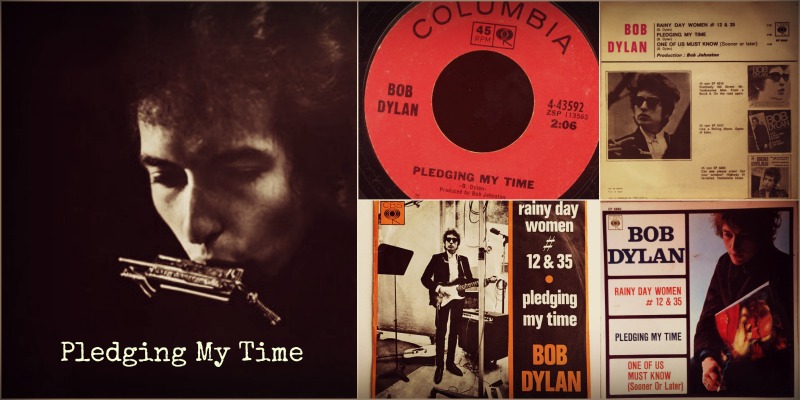 [vc_row][vc_column][vc_message message_box_color=”mulled_wine” icon_fontawesome=”fa fa-quote-left”]Well, early in the mornin’
[vc_row][vc_column][vc_message message_box_color=”mulled_wine” icon_fontawesome=”fa fa-quote-left”]Well, early in the mornin’